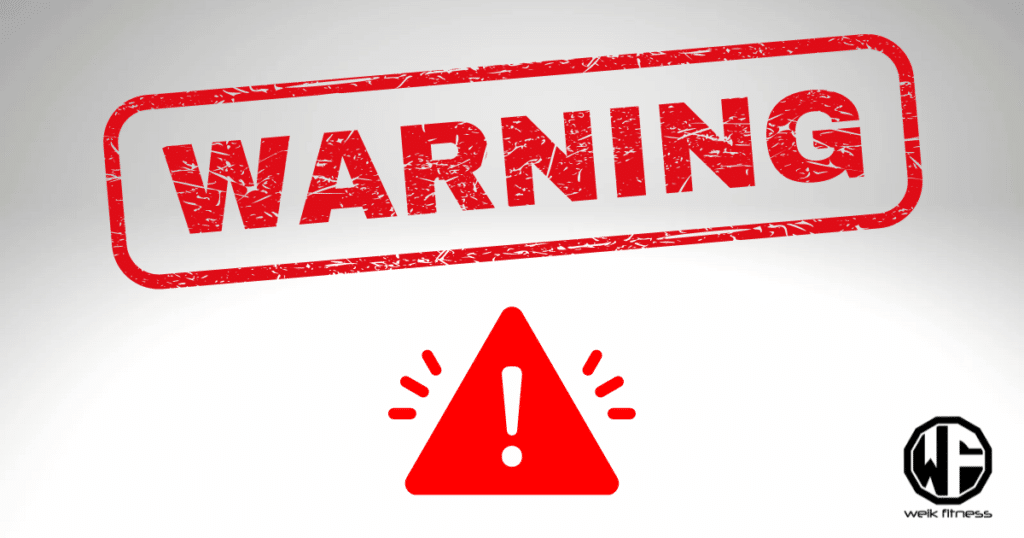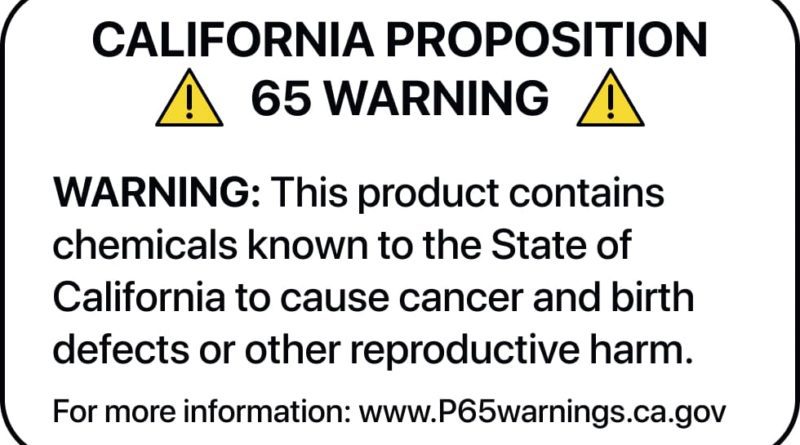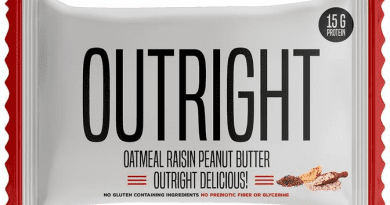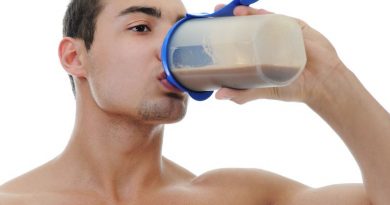What is Prop 65 and Why Do You See It on Supplement Labels?
You all have seen it on your supplements, but very few have any clue what Prop 65 is. In fact, finding the warning on a label could very well cause you to put the product back, thinking that it’s going to do you harm. Meanwhile, it’s simply something that supplement companies are putting on their labels in order to stay away from California lawsuits. You can think of it as a preventative measure since California lawyers will sue for almost anything.
So, here it is…
Warning: Consuming this product can expose you to lead, a chemical known to the State of California to cause cancer, birth defects, or other reproductive harm.
You’ve seen that warning before, right?
If you live in the state of California, you might have definitely come across this warning label on various products, which indicates the “presence of chemicals” that can cause harm.

Here’s the truth, unless you are buying from some shady company, you can expect your supplements to be free from harmful chemicals or substances — assuming the supplements are manufactured in a cGMP facility.
This warning label on products is known as California Proposition 65, also known as Prop 65 in short. It can be found in various products ranging from dietary supplements to personal care and even bath products. Let’s dive into things and understand the basics of Prop 65.
Disclaimer: This article is for informational purposes only and is not meant to treat or diagnose any condition. It is recommended that you speak with your doctor before starting any exercise program, changing your daily nutrition, or adding any supplements to your regimen.
Table of contents

What is Prop 65 (Proposition 65)?
Proposition 65, also known as the Safe Drinking Water and Toxic Enforcement Act, is a law that was passed in the state of California back in 1986. This law was passed with the intention of allowing Californians to make informed decisions regarding the products they purchase and use.
As per the law, the companies are required to put a warning label on the products that “may” contain specific chemicals above the predetermined level. But again, to reiterate what was already said, many companies still put the Prop 65 warning on their label even after the product was thoroughly tested if they plan on selling products in or into the state of California.
The purpose of Prop 65 is to inform consumers about the hazardous content present in certain products that they consume and not to restrict the sale of products that may contain those harmful chemicals (even in the smallest of amounts).
However, Prop 65 is one of the most ubiquitous business regulations that people generally don’t know about. The list is constantly updated with a few additions based on recent research and removing the names of chemicals that are no longer considered to be harmful.
Related Article: More Changes to the Nutrition Label?
Prop 65 also prohibits businesses in California from discharging significant amounts of listed chemicals into drinking water sources.
There are approximately 900 chemicals (some natural and some artificial) that are included in the Prop 65 list—for example, Benzene, Lead, Carbon Monoxide, etc. You can check out the complete list on their website.
The Benefits of Proposition 65
The main objective of Prop 65 is to minimize the exposure to harmful chemicals in the state of California. Prop 65 warning labels on the products allow individuals to make an informed decision about the products they purchase. This helps to reduce exposure to chemically harmful products. It is because of Prop 65 that various companies have removed harmful chemicals from their products. The Prop 65 law has also helped increase transparency.
Should You Avoid Products with Warning Labels of Prop 65?
Well, products labeled with Prop 65 warning are not necessarily dangerous when used as directed (as the chemical exposure is minimum in that case). Further, Prop 65 guidelines are much more rigorous than many EPA and US FDA guidelines.
For example, as per EPA, the limit for lead in the drinking water is 15mcg/L, whereas the Prop 65 threshold of any product containing 0.5 mcg of lead. Similarly, the FDA limit for lead exposure is 12.5 mcg per day.

Apart from that, there are various natural food items that contain heavy metals and are exempt from Prop 65. For example, dark chocolate contains 0.92 mcg of lead per ounce (this exceeds Prop 65 guidelines), and grape juice contains approximately 2.6 mcg of lead per serving (which is over five times the limit advised by Prop 65).
All that being said, California looks at the supplement industry as an easy target of lawsuits, and therefore, many brands put the Prop 65 warning on their labels. If you were to follow the bouncing ball, most lawsuits filed in the supplement industry come from California attorneys.
Do Organic Products Contain Fewer Metals?
Absolutely not! In fact, you may find that there is a high level of metal in certain organic products. As per a study by Clean Label Project, certified organic plant-based protein powder contains twice the amount of lead as compared to animal-based protein powder. This is mainly due to the presence of heavy metal content in soil and plants.
Do You Have Anything to Worry About?
Even if you find a product with a Prop 65 warning label, the chemical exposure is generally low, as the regulations are very stringent. But it is recommended to use the supplement as directed by a medical professional.


*Disclosure: This article may contain affiliate links or ads, which means we earn a small commission at no extra cost to you if you make a purchase through these links. These commissions help support the operation and maintenance of our website, allowing us to continue producing free valuable content. Your support is genuinely appreciated, whether you choose to use our links or not. Thank you for being a part of our community and enjoying our content.
PLEASE CONSIDER SHARING THIS ON YOUR SOCIAL MEDIA TO HELP OTHERS LEARN MORE ABOUT THIS TOPIC.





